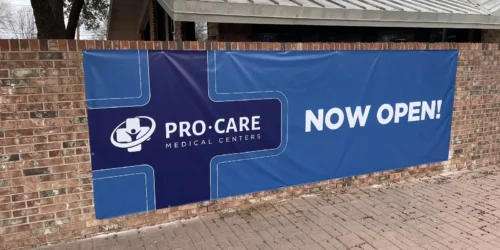Many people think “it won’t happen to me” about getting into a car accident. You may be confident in your driving skills, but other drivers on the road can also pose a danger to your safety. Millions of car accidents happen each year in the United States, and it is important to understand that this includes everything from mild fender-benders to multi-vehicle crashes. Unfortunately, thousands of people die every year in car accidents. Your chances of getting into a car accident are higher than you might think. Thankfully, if you ever get into a crash, specialized and qualified car accident doctors can help you through the process.
Common Reasons for Car Accidents
Due to the increase in safety features and safety standards across all vehicles in the last few decades, the chances of getting in an accident leading to serious injury or fatalities has decreased. However, car accidents still occur every day. Here are examples of common reasons why millions of car accidents continue to happen each year.
Distracted Driving
Distracted driving is the number one cause of car accidents each day. Distracted driving can include talking on the phone, texting, or something as simple as looking down to change the radio station. Other examples of distracted driving include trying to eat while driving and reaching around or handing something to another passenger in the back seat.
Speeding
Breaking the speed limit is the number two cause of car accidents each day. When you drive at a high rate of speed, your reaction times actually slow down. This means you will have a shorter amount of time to react if something suddenly occurs, like another driver changing lanes or an obstruction in the road. Drivers who do not obey the speed limit also put other drivers on the road at greater risk.
Reckless Driving
Reckless driving is a phrase used to describe behaviors like excessive speeding, aggressive driving, and blatantly disobeying common traffic laws. In many cases, reckless driving is considered a criminal offense because you are putting others at risk with disregard for their safety and traffic rules in place.
Poor Weather Conditions
Bad weather, like heavy rain or dense fog, can make for terrible conditions to drive in. Wet and icy roads require drivers to pay better attention and take precautions for the safety of themselves and others on the road. Driving in poor weather conditions can also lead to accidents when distracted or inexperienced drivers are on the road.
Nighttime Driving
Driving at night can put you at greater risk of getting into a car accident because of reduced visibility. Nighttime driving can also make obstacles or hazards in the road more difficult to spot. Drivers who don’t use their headlights properly can put others on the road at risk by making it more difficult to identify another vehicle when it’s dark outside.
Drunk Driving
Drunk driving is another leading cause of car accidents in the United States. Driving while intoxicated impairs your ability to think clearly and respond quickly enough to a sudden situation. This puts you and others on the road at greater risk for a serious collision.
Common Car Accident Injuries
Car accidents can also cause injuries to drivers and passengers, regardless of who was at fault. Here are five examples of common car accident injuries.
Whiplash
Whiplash is the most common car accident injury, especially with rear-end collisions or fender-benders. When a vehicle hits yours from behind, it can cause your head and neck to snap forward and backward violently. This can strain the muscles in your neck out of their typical range of motion. Whiplash can also put significant pressure on the spine in your neck, causing damage like misalignments or further injury to spinal joints and discs.
Sprains & Strains
A sprain is a type of injury that impacts the soft tissues that connect two bones together, while a strain is a type of injury that impacts the soft tissues that attach muscles to bones. Whiplash is a common example of a neck strain after a car accident. You can also suffer a sprained wrist or ankle from a car accident because a crash can also lead to injuries in your extremities.
Dislocations & Fractures
Dislocated joints and broken bones can also occur after a car accident. A broken bone is also known as a fracture and can occur due to the sudden impact with part of the vehicle, like the dashboard or a window. Shoulder dislocations can occur due to the pressure of the seat belt on your shoulder as the force of impact causes your body to jostle around.
Spine Injuries
Injury to the spine can occur because of how much pressure and stress a car accident can put on your body. The spine helps you to sit up straight and move around, but a sudden force of impact can be too much for the body to absorb without injury. One example of a spine injury after a car accident is a herniated disc. Damage to the spinal discs can occur and cause pain and other uncomfortable symptoms like tingling, weakness, and numbness.
Concussion
A blow to the head can lead to a concussion, which is the most common form of a traumatic brain injury. If you hit your head during the accident, then you want to get checked out by a doctor right away to get assessed for possible head trauma. A concussion can cause serious and sometimes life-threatening symptoms, including damage to the brain.
When to See a Car Accident Doctor
If you’ve been in a car accident, then you want to take precautions and get checked out by a car accident doctor. At Pro-Care Medical Centers, our team of car accident doctors is available at a location near you to provide you with quality and comprehensive care. A car accident doctor will assess you for injuries, determine the appropriate diagnosis, and develop an individualized treatment plan to address your specific injuries and symptoms. Visit Pro-Care Medical Centers to find out more and book an appointment with a car accident doctor near you today!



